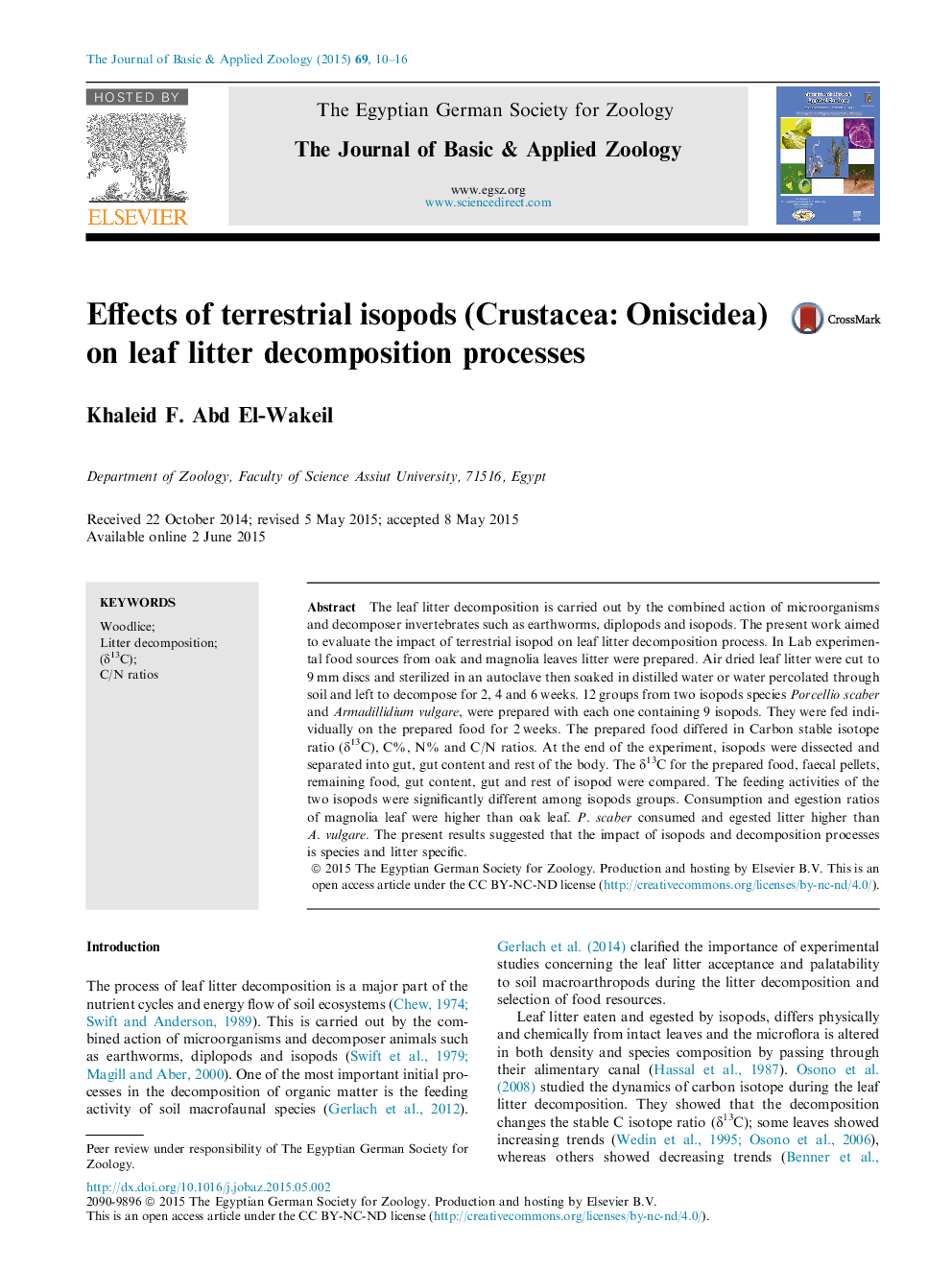| Article ID | Journal | Published Year | Pages | File Type |
|---|---|---|---|---|
| 4493443 | The Journal of Basic & Applied Zoology | 2015 | 7 Pages |
The leaf litter decomposition is carried out by the combined action of microorganisms and decomposer invertebrates such as earthworms, diplopods and isopods. The present work aimed to evaluate the impact of terrestrial isopod on leaf litter decomposition process. In Lab experimental food sources from oak and magnolia leaves litter were prepared. Air dried leaf litter were cut to 9 mm discs and sterilized in an autoclave then soaked in distilled water or water percolated through soil and left to decompose for 2, 4 and 6 weeks. 12 groups from two isopods species Porcellio scaber and Armadillidium vulgare, were prepared with each one containing 9 isopods. They were fed individually on the prepared food for 2 weeks. The prepared food differed in Carbon stable isotope ratio (δ13C), C%, N% and C/N ratios. At the end of the experiment, isopods were dissected and separated into gut, gut content and rest of the body. The δ13C for the prepared food, faecal pellets, remaining food, gut content, gut and rest of isopod were compared. The feeding activities of the two isopods were significantly different among isopods groups. Consumption and egestion ratios of magnolia leaf were higher than oak leaf. P. scaber consumed and egested litter higher than A. vulgare. The present results suggested that the impact of isopods and decomposition processes is species and litter specific.
